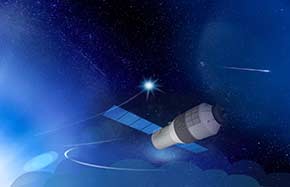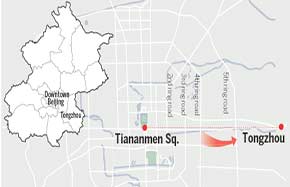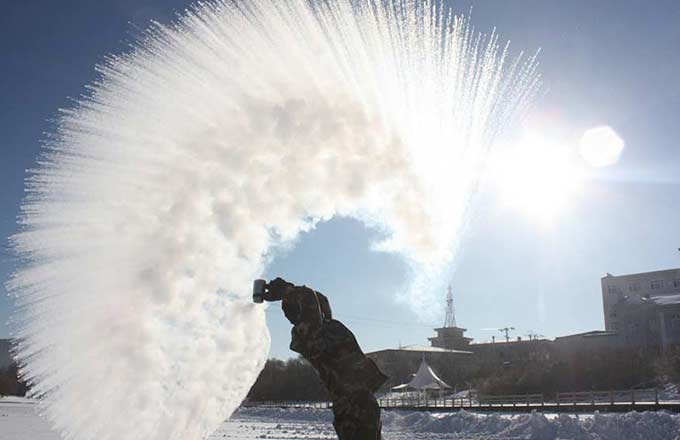Mist cannon among tools used to fight heavy smog
Heavy smog that has been covering many cities in northern China has caused some authorities to bring out pollution-fighting artillery.
The mist cannon, which is not well-known but gaining popularity, is a large machine mounted on a truck that sprays water mist.
They were initially used at construction sites and mines to reduce dust. But engineers have improved the machines to make them release tinier droplets of mist for combating fine airborne particles, said Xu Yuexin, an engineer with Beijing Capital Group Boom-sound Environment Science & Technology Co Ltd, which provides the mist cannon service in parts of the capital.
"The truck works by nebulizing water into tiny particles, with diameters in microns, the same as PM2.5 and PM10, and spraying them into the air, and then they could combine with the dust and fine particles to fall to the ground," Xu said.
Experts have found they're effective, but have their limits. They are, officials said, only one of the measures being taken. Tough restrictions on emissions is still the best way to control air pollution for the longer term.
Beijing residents woke up to thick smog over the weekend, with the air pollution readings of 21 monitoring stations climbing to the most hazardous level in the early hours of Sunday. The visibility was reduced to within 500 meters in some areas.
The smog, which also covered vast areas of the country's north, was mainly a product of windless weather that was unable to disperse pollutants, according to environmental authorities in the affected areas.
The capital issued its second-highest warning against air pollution, an orange alert, on Thursday, one day before smog covered the city. Under an orange alert, the capital takes comprehensive measures to control the emissions from companies, vehicles and construction sites.
Implementation of restrictions under the alerts has been strengthened, officials said. In Beijing on Sunday, the alert prompted inspectors to monitor 533 companies and construction sites, and check over 57,800 vehicles, the municipal environmental bureau said.
The mist cannon trucks are being used to spray in the mornings, and do so more frequently, some three to five times, during smoggy days.
Authorities also spray special chemicals on the roads through regular watering vehicles once a week. The spray absorbs and consolidates the dust and pollutants from vehicle exhaust, Xu said.
The combination of the mist cannon and the chemicals "have been determined effective in reducing the fine particles", Xu said.
According to tests conducted by researchers with the China National Environmental Monitoring Center, the mist cannon and the chemicals can together "cut the PM10 by 20 percent, PM2.5 by 5 percent and nitrogen oxides by 10 percent", according to Xu.
There are two trucks covering 35 streets in the capital's Chaoyang district, mainly around the Olympic venues and regions where embassies are concentrated, because of the high population densities and frequency of events. The trucks started operating in October and plans call for them to continue to April 2017.
Li Gang, from the company's marketing department, said that additional districts in Beijing and other cities may adopt the services if the mist and chemicals perform well.
Many cities in northern China, including Xi'an in Shaanxi province and Zhangjiakou in Hebei province, have used mist cannons since 2014. There also is interest in them from cities this year such as Chengdu in Sichuan province and cities in Hunan province, officials said.
But Shi Guoliang, associate professor of environmental sciences at Nankai University in Tianjin, said, "The mist cannon did work in reducing the particles, but worked only for a limited time and region, yet it's better than doing nothing."
The government should pay more attention to implementing measures to cut the emissions at their source, he added.
zhengjinran@chinadaily.com.cn



















